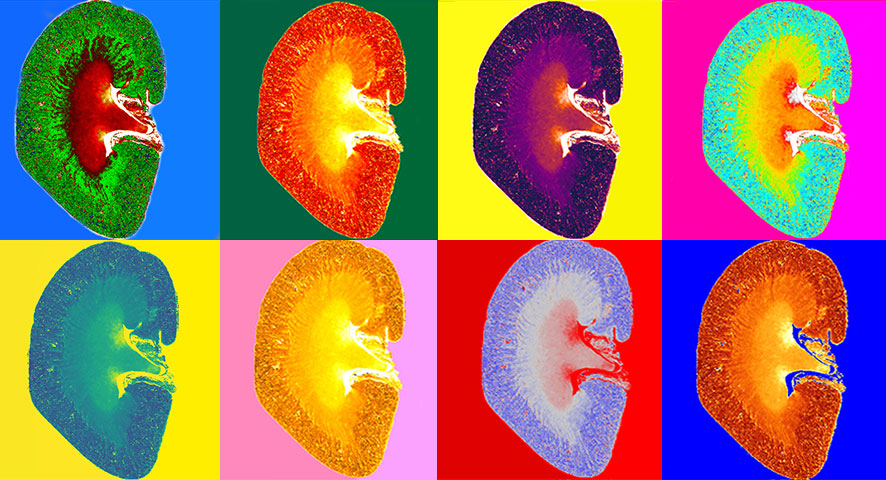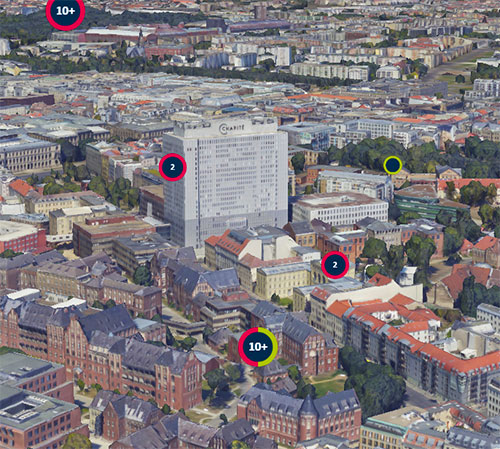Research environment

Ehsan Tasbihi, Ludger Starke, Jason M. Millward, Thomas Gladytz, Thoralf Niendorf / Max Delbrück Center, in co-operation with Erdmann Seeliger and Luis Hummel / Charité – Universitätsmedizin Berlin
Facts and figures
- More than 20 university and non-university research institutes perform research in the field of life sciences and provide training and education programs, among them:
- 4 universities with 14 specialized departments and 34 institutes
- 7 universities of applied sciences (“Fachhochschule”)
- 7 institutes mandated with research tasks by the government - One of Europe’s largest university hospitals – the Charité – with more than 100 clinics and institutes clustered in 17 Charité Centers
- Almost 21,000 employees across the group, including more than 17,600 Charité employees from a total of 119 nations
- The excellent and closely knit network between research-intensive hospitals and CROs as well as the highly diverse range of test groups has made the city a center for clinical studies
Major research focuses
- Gene and cell therapy
- Genome and proteome research
- Biosensors, bioanalytics, molecular biology
- Regenerative medicine
- Molecular medicine
These core fields of biotechnology are complemented by the expertise available in the city in major enabling technologies, such as microsystems technology and nanotechnology, optical technologies, digital technologies, mathematics, chemistry and physics.

